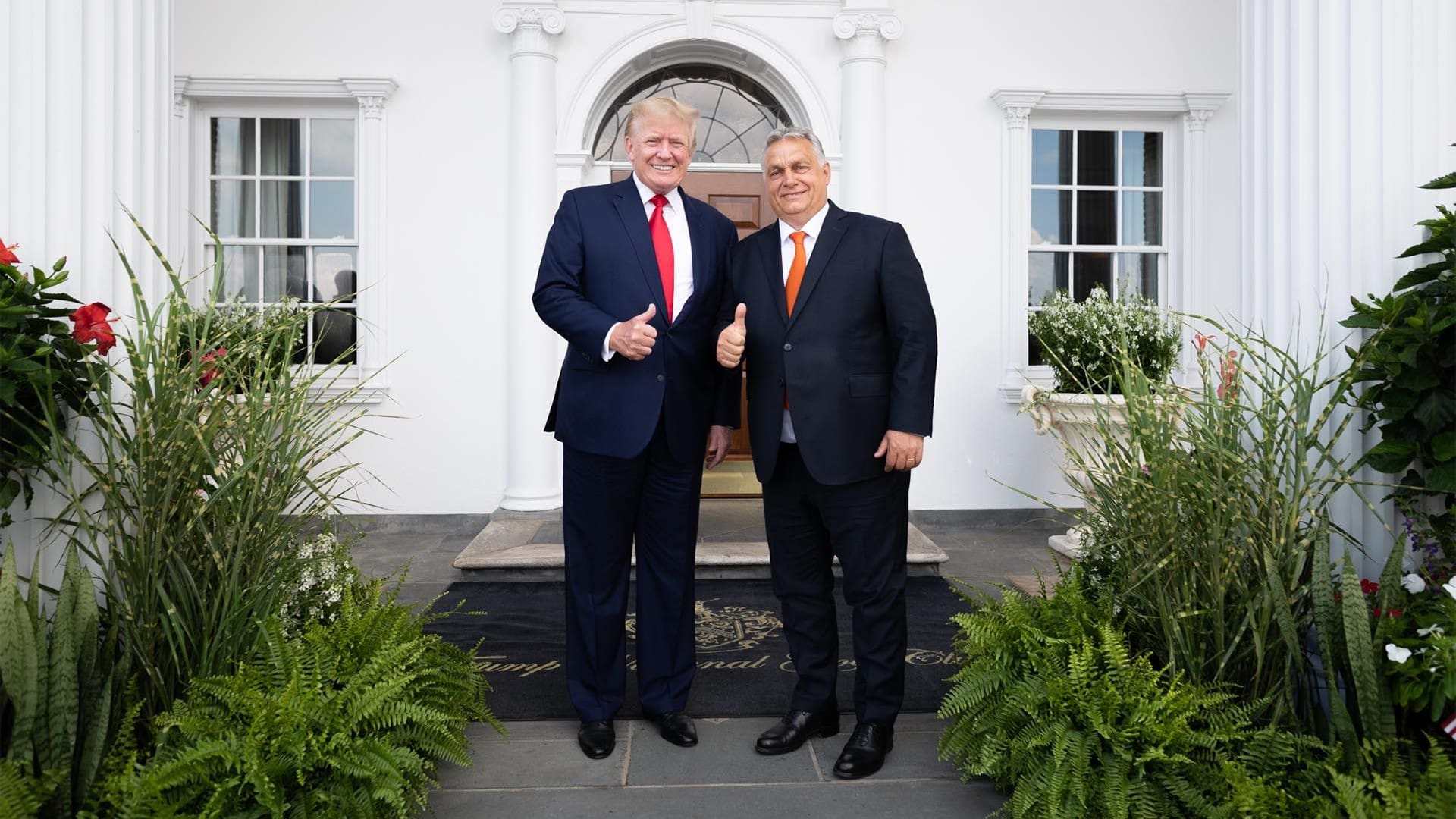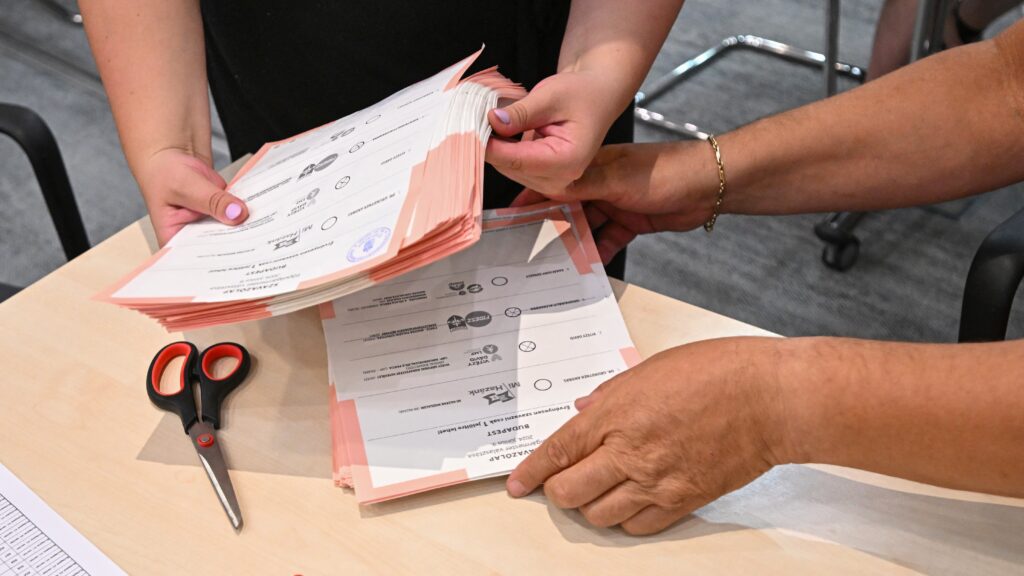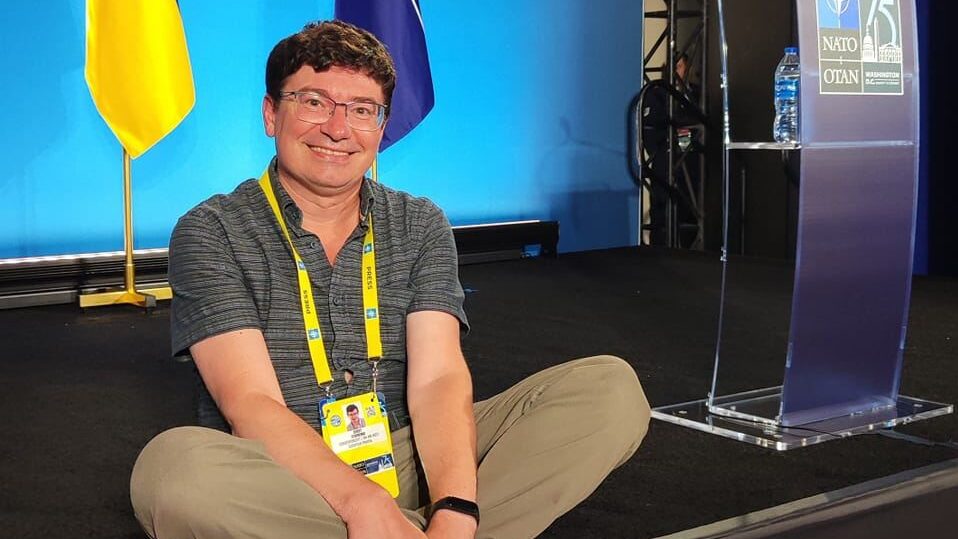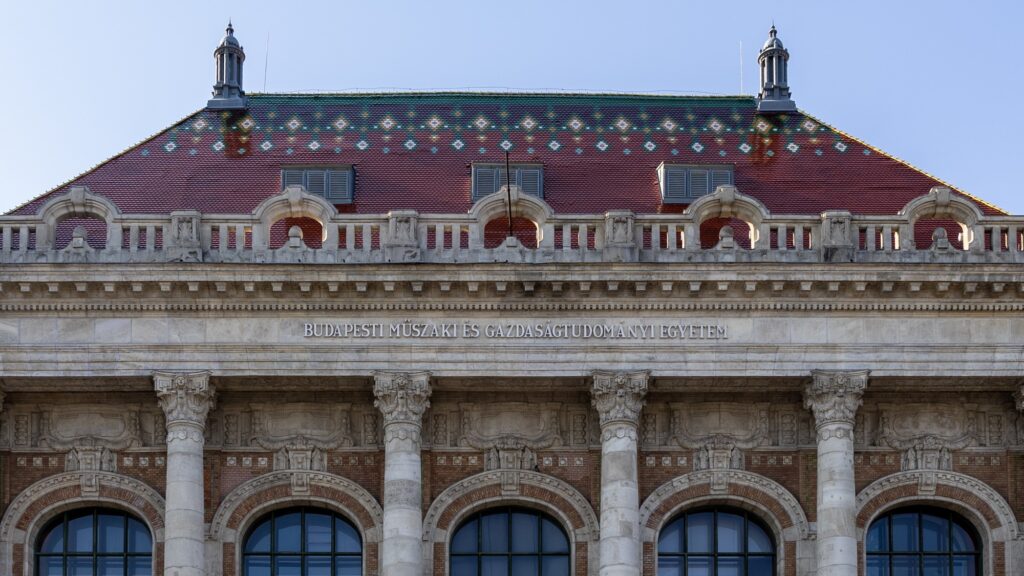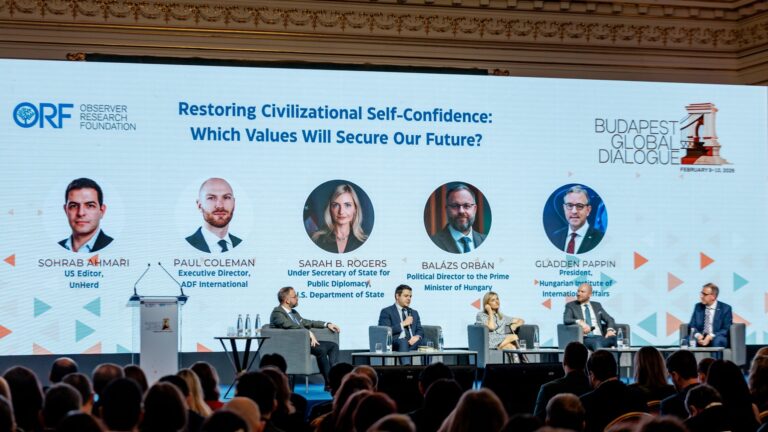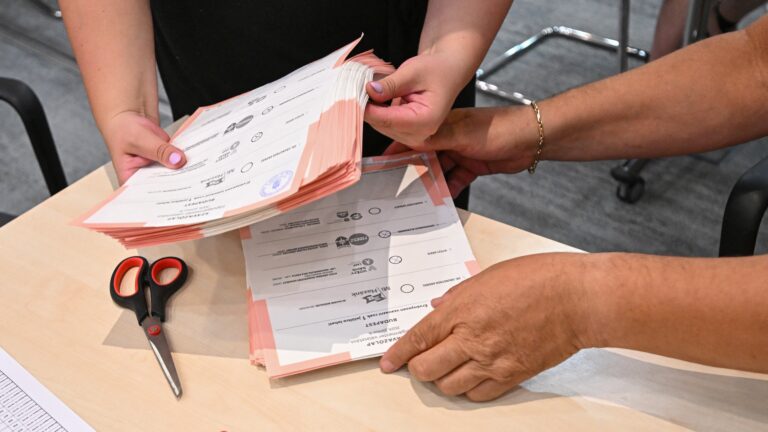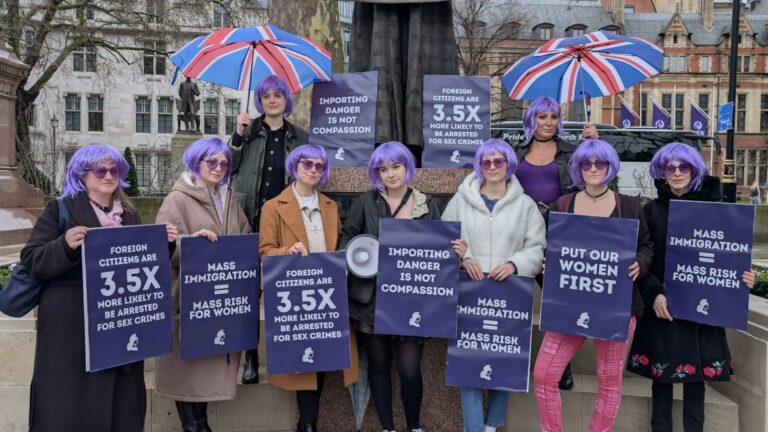US President Donald Trump sought advice from Hungarian Prime Minister Viktor Orbán ahead of the upcoming summit with Russian President Vladimir Putin in Alaska.
During a White House press conference on 11 August, Monday, Trump said he asked Orbán—whom he described as a ‘very smart man’—whether he thinks Ukraine can defeat Russia. According to Trump, Orbán replied by stating that Russia is a ‘strong country that has gained its territories and everything it has through war.’ ‘War is what it does best,’ Trump continued, quoting Orbán. The Hungarian prime minister then compared China’s trade power with Russia’s military experience: ‘China wins through trade, and Russia wins through war.’ Trump called Orbán’s words ‘a very interesting insight’.
The White House on X (formerly Twitter): “President Trump Holds a Press Conference, Aug. 11, 2025 https://t.co/XqUHGGNVlo / X”
President Trump Holds a Press Conference, Aug. 11, 2025 https://t.co/XqUHGGNVlo
Trump is preparing for what could be a historic summit with Putin on Friday, 15 August, where the two leaders are expected to discuss a potential ceasefire framework for the war in Ukraine. At the same press conference, he described the meeting in Alaska as ‘a moment to feel out’ the Russian leader’s parameters for ending the conflict, while acknowledging that further meetings would be needed to reach a final peace agreement.
On 6 August, Trump’s special envoy Steve Witkoff met Putin in Moscow, where the Russian president laid out his proposal, consisting of the unilateral withdrawal of Ukrainian troops from Luhansk and Donetsk for the ceasefire to take effect. Following this, Russian troops would pull back from Kharkiv and Sumy, as a goodwill gesture, and other parts of the line of contact would become frozen.
Ukrainian President Volodymyr Zelenskyy, the European Union leadership, and the Coalition of the Willing rejected the proposal outright. Over the weekend, staunch European supporters of Kyiv’s war efforts gathered in the United Kingdom for an emergency meeting attended by US Vice President JD Vance, Secretary of State Marco Rubio, and Trump’s two special envoys in the region, Keith Kellogg and Witkoff. Zelenskyy and EU leaders presented their counterproposal against Putin’s conditions, which included the following principles:
- A ceasefire first, followed by territorial talks;
- Reciprocal land withdrawals;
- Strong security guarantees, including NATO membership;
- No deal without Ukraine (and the EU).
While acknowledging these concerns as ‘serious’, Washington stopped short of endorsing the counterproposal. Vance hailed ‘significant progress’, but US officials fear that NATO guarantees and reciprocal withdrawals may be seen by Russia as ‘maximalist’ and could stall talks with Putin.
Hungarian Conservative on X (formerly Twitter): “EU and Ukrainian officials rejected Russia’s 9 August ceasefire proposal at a London emergency meeting attended by @JDVance, @SecRubio, and Trump envoys @generalkellogg and @SteveWitkoff. EU member states have also offered Washington a counterproposal🧵 pic.twitter.com/Y8GQ8naEy6 / X”
EU and Ukrainian officials rejected Russia’s 9 August ceasefire proposal at a London emergency meeting attended by @JDVance, @SecRubio, and Trump envoys @generalkellogg and @SteveWitkoff. EU member states have also offered Washington a counterproposal🧵 pic.twitter.com/Y8GQ8naEy6
Following a Sunday phone call between German Chancellor Friedrich Merz and Trump, German officials announced on Monday that the US president and vice president will host a video conference on Wednesday, with the participation of Zelenskyy and the leaders of France, the UK, Italy, Poland, Finland, Ursula von der Leyen, and NATO Secretary‑General Mark Rutte. The meeting will discuss strategies to pressure Russia, preparations for peace talks, territorial issues, and security guarantees for Ukraine. The main goal for European leaders is to bring Zelenskyy to the negotiating table, something Trump is open to, although Putin has stated that the conditions for such a meeting have not yet been met.
PM Orbán urged leading European Union powerhouses, France and Germany, to engage in dialogue with Russia ahead of the Trump–Putin meeting on 11 August, stating that Paris and Berlin ‘hold the future of the continent in their hands,’ and must immediately initiate an EU–Russian summit to prevent a scenario where Russia and the United States ‘decide Europe’s fate without us.’ ‘Everything now depends on how European leaders respond,’ he argued. The Hungarian prime minister also described the upcoming week as historic and endorsed Trump’s pursuit of peace.
Besides their fundamentally good and close relationship, Trump probably could not find anyone more knowledgeable than Orbán when it comes to the war in Ukraine. Hungary has advocated for a ceasefire and peace talks since Russia invaded Ukraine in February 2022—a stance that has faced significant opposition from Brussels and hawkish member states, as well as from the former US administration. Orbán has already concluded two peace missions—at the beginning and end of Hungary’s 6-month-long EU Council Presidency. In both cases, Orbán met with Zelenskyy and Putin, as well as other key figures with an interest in the conflict and its resolution, such as Chinese President Xi Jinping, Turkish President Recep Tayyip Erdogan, the late Pope Francis, and Trump, who was running for president at the time. He even proposed a Christmas ceasefire for the parties, rejected by Zelenskyy straightforward. Orbán also placed high hopes on Trump’s victory, considering him ‘the only man who could make peace’ in Ukraine.
Related articles:

